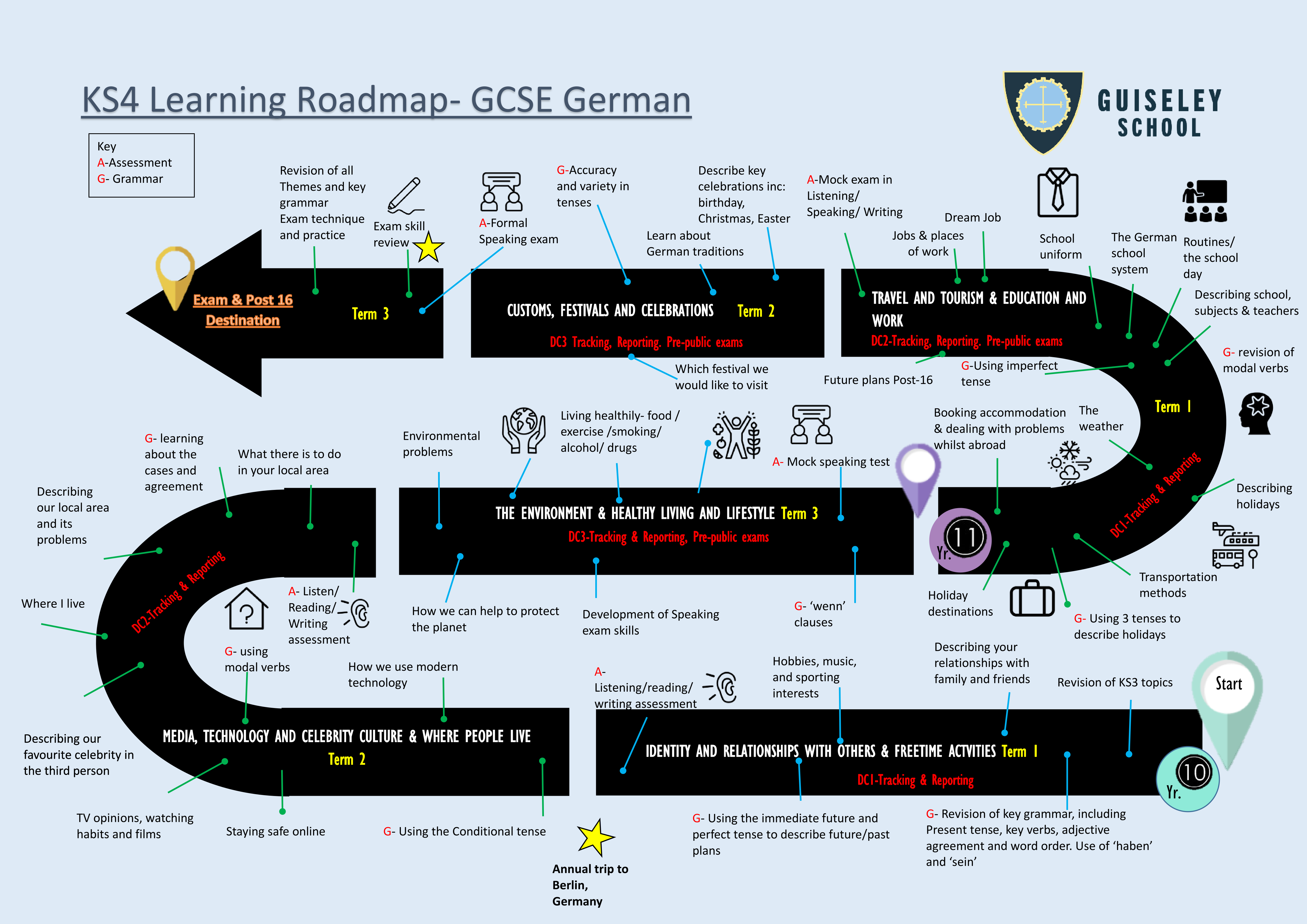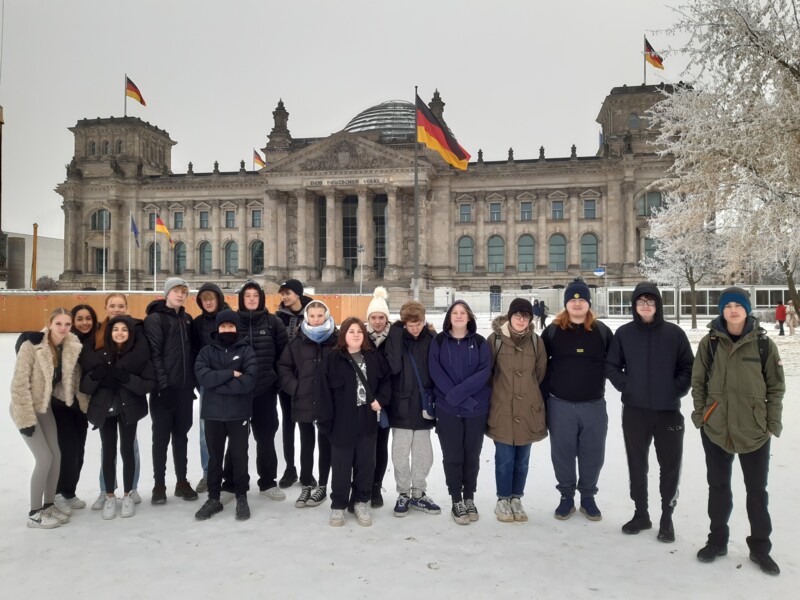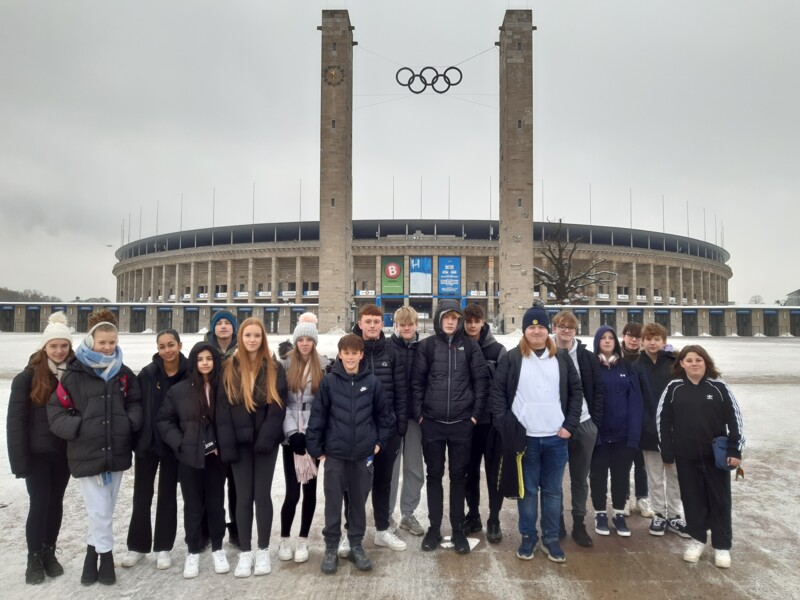
GCSE German

The GCSE German course helps students develop essential language skills, including listening, speaking, reading, and writing. By studying topics like identity, healthy living, and the environment, students build strong communication, problem-solving, and critical thinking skills. These skills are valuable for future academic and career opportunities, as well as enhancing cultural awareness and global understanding. Regular practice in speaking, listening, and writing prepares students for real-world communication, while fostering independence and confidence in using a foreign language.
Pupils study their language course over a two-year period and cover three thematic areas, with sub-topics within the below theme areas.
Theme One : People and Lifestyle.
Theme One covers the following three topics:
- Topic One: Identity and relationships with others
- Topic Two: Healthy living and lifestyle
- Topic Three: Education and work
Theme Two: Popular Culture.
Theme Two covers the following three topics:
- Topic One: Free-time activities
- Topic Two: Customs, festivals and celebrations
- Topic Three: Celebrity culture
Theme Three: Communication and the World Around Us.
Theme Three covers the following three topics:
- Topic One: Travel and tourism, including places of interest
- Topic Two: Media and technology
- Topic Three: The environment and where people live
GCSE Languages are assessed through four skill areas, listening, speaking, reading and writing at the end of the course. Each skill equates to 25% of the final grade.
There are two tiers of entry, Higher and Foundation. Higher allows pupils to achieve grades 9-4 and Foundation 5-1. Pupils should have an idea of the tier of entry they will be aiming to sit in the final examinations, but these are reviewed throughout the course in relation to the Pre-Public Examinations (PPEs). Final decisions on tier of entry are made following the second series of PPEs.
Paper Two, Speaking, takes place before the main exam period.
Paper One, Listening and Paper Three, Reading take place in the same examination session, with Paper Four, Writing, taking place in a separate exam session.
Pupils will be assessed throughout the two-year course in all skill areas. In Year 10, pupils will sit a full mock paper in each skill area by the end of the academic year.
In Year 11 students pupils will complete PPEs, one in October/November, and one in February. In both of these, pupils will sit Paper One, Paper Three and Paper Four.
A second speaking mock examination will take place in January, with the first mock speaking examination completed in June of Year 10.
In addition to this, we have several common interim assessments mainly focussing on the written aspect of the examination.
Independent learning is key for success in Modern Foreign Languages; therefore an independent learning programme will be in place with three key activities to be completed weekly.
- Vocabulary learning.
- Topic test from Exampro, testing listening and reading skills with past examination questions.
- Speaking revision - this comes in the format of a speaking booklet with some example questions that pupils can prepare responses to and revise from these for their speaking and in turn support their writing exam.
There are plenty of useful websites for additional revision:
AQA website: www.aqa.org.uk
Students can use this to access the vocabulary specification to learn and a variety of past papers.
BBC Bitesize: GCSE Modern Foreign Languages - BBC Bitesize
Another useful website, with practice questions and past exam papers and revision videos and notes.
Quizlet: Languages Flashcards | Quizlet
To support the students in their German this year we are offering the following:
There is an open invite to all pupils who would like to practice their speaking skills. Some pupils will be invited specifically to complete a minimum of a 5 week cycle to develop their exam skills.
In Year 10, GCSE German students are given the opportunity to immerse themselves in the German language and culture by participating the trip to Berlin. We visit the Christmas markets, important historic locations and have the chance to use German real life situations



